1. Kids Had to Be Home Before the Streetlights Came On
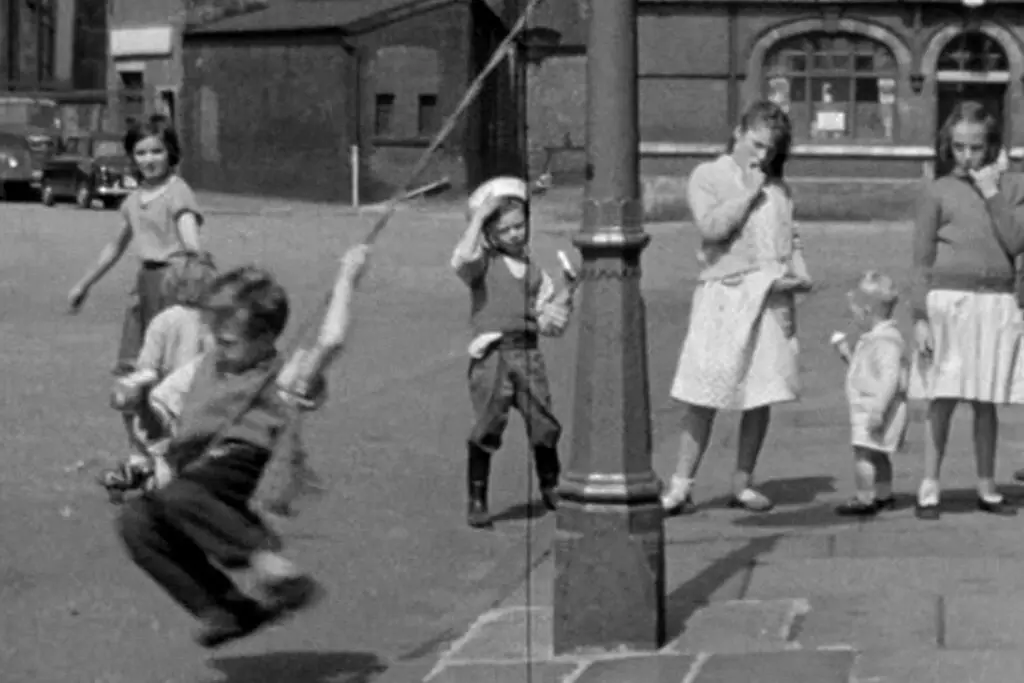
Back in the ’60s, kids had way more freedom to roam the neighborhood, but that freedom came with a strict curfew—be home before the streetlights flickered on. Parents didn’t have GPS trackers or cell phones, so this was their way of making sure their kids weren’t getting into trouble after dark. If you lost track of time, you had to rely on a friend’s mom to call your house or just sprint home as fast as possible. And if you showed up even a few minutes late, you might have gotten an earful or been grounded for a week shares Yahoo.
This rule wasn’t just about keeping kids out of trouble—it was also a way for families to stick to routines. Dinner was usually around the same time every night, and parents expected their kids to be home, washed up, and ready to eat together. The idea of a family dinner was non-negotiable, and being late because you were playing kickball down the street wasn’t an excuse. If you weren’t at the table when the food was served, you might have just missed out adds MSN.
2. No TV Until Homework Was Finished
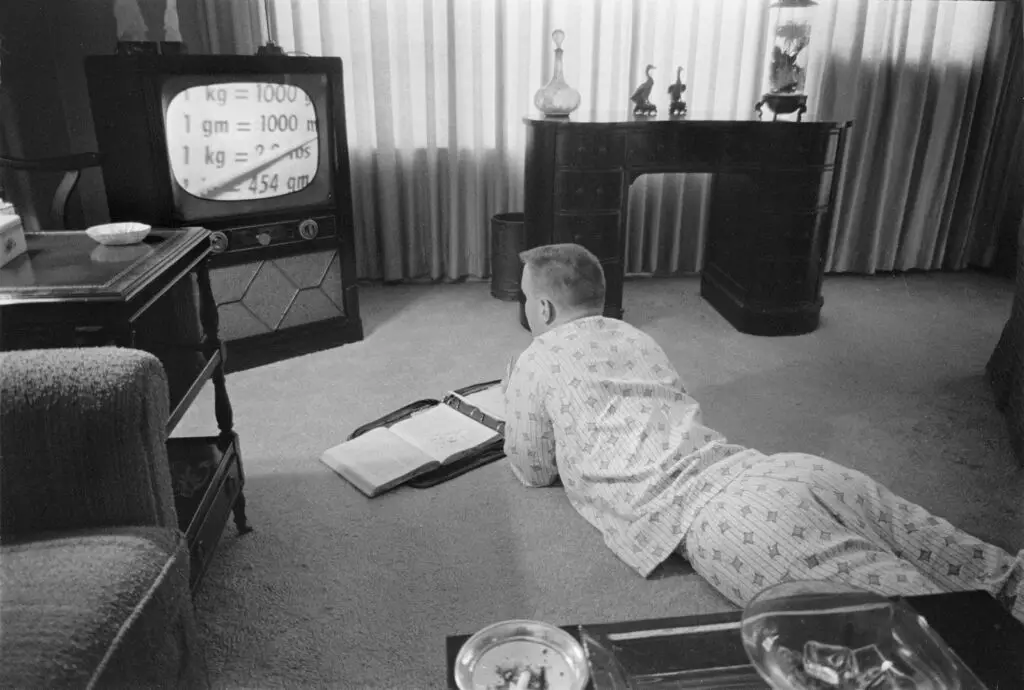
Television was a major source of entertainment in the ’60s, but it was also seen as a distraction from more important responsibilities—like homework. Parents didn’t want kids glued to the screen when they had assignments to finish, so the rule was simple: no TV until your work was done. That meant if you had math problems to solve or a book to read, you had to get through it before you could watch The Ed Sullivan Show or Batman says Starts at 60.
This rule was even harder to follow when your siblings were already done with their homework and got to watch TV while you were stuck at the kitchen table. If you tried sneaking a peek, you’d likely get a stern reminder from Mom or Dad. And forget about rushing through your work just to watch a show—parents had a way of checking over your answers to make sure you weren’t cutting corners. If your work wasn’t up to their standards, you’d be right back at that table redoing it shares Housely.
3. Sunday Was Strictly for Church and Family

Sundays in the ’60s weren’t for sleeping in or lounging around—they were dedicated to church and family time. For many families, it wasn’t even a question of whether you’d go to church; it was just part of the weekly routine. You’d wake up, put on your best clothes, and head to the service with your parents keeping a close eye on your behavior. There was no zoning out during the sermon unless you wanted a nudge from Mom.
After church, the day was still structured around family activities. Whether it was a big Sunday dinner, a visit to Grandma’s house, or a relaxing afternoon drive, Sundays were all about togetherness. Stores were often closed, so there wasn’t much else to do anyway. If you were lucky, you might get to play outside, but only after all the family obligations were met. Skipping out on church or complaining about family time? That was a surefire way to get a talking-to.
4. Kids Had to Answer the Phone with Perfect Manners
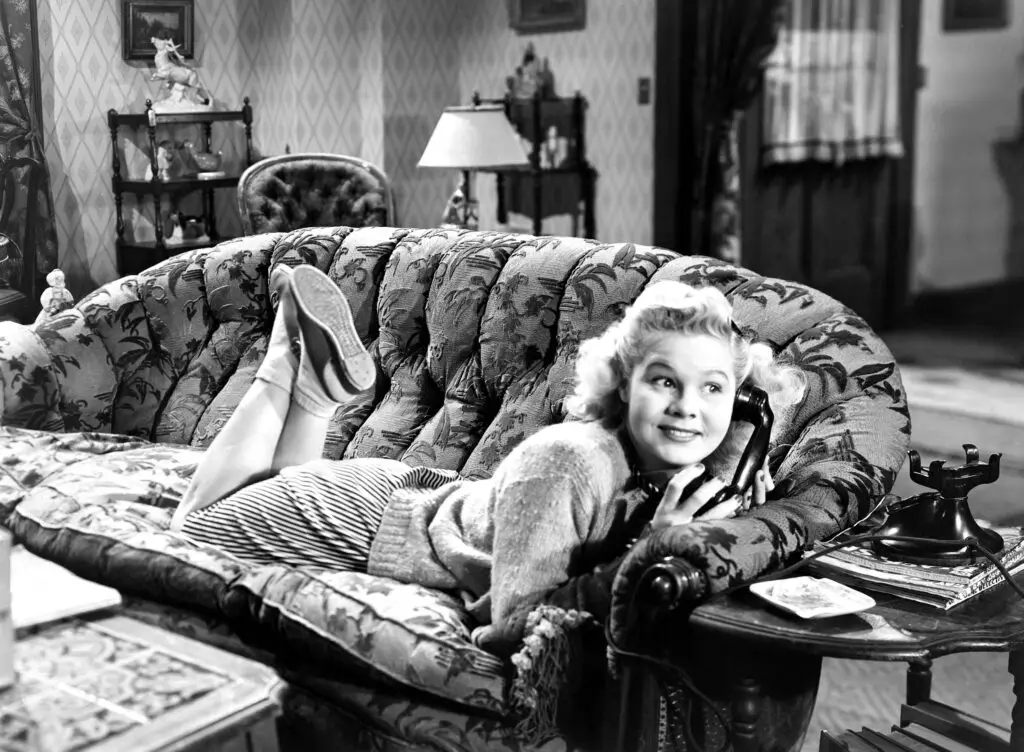
Before caller ID, you never knew who was on the other end of the line, so answering the phone properly was a big deal. Parents taught their kids to say, “Hello, this is [last name] residence,” or something equally polite. Mumbling “Hello?” or, worse, just saying “Yeah?” could earn you a lecture about showing respect. If it was an adult calling—especially a teacher, boss, or relative—you had to be extra formal.
Talking on the phone was a skill, and parents expected kids to be able to take messages correctly too. If someone called for Mom or Dad, you had to write down the name and number without forgetting. Losing a message meant serious trouble, especially if it was something important. And, of course, there was no keeping the phone tied up for hours—parents controlled the house line, and they made sure it wasn’t used for idle chatter.
5. You Had to Eat Everything on Your Plate
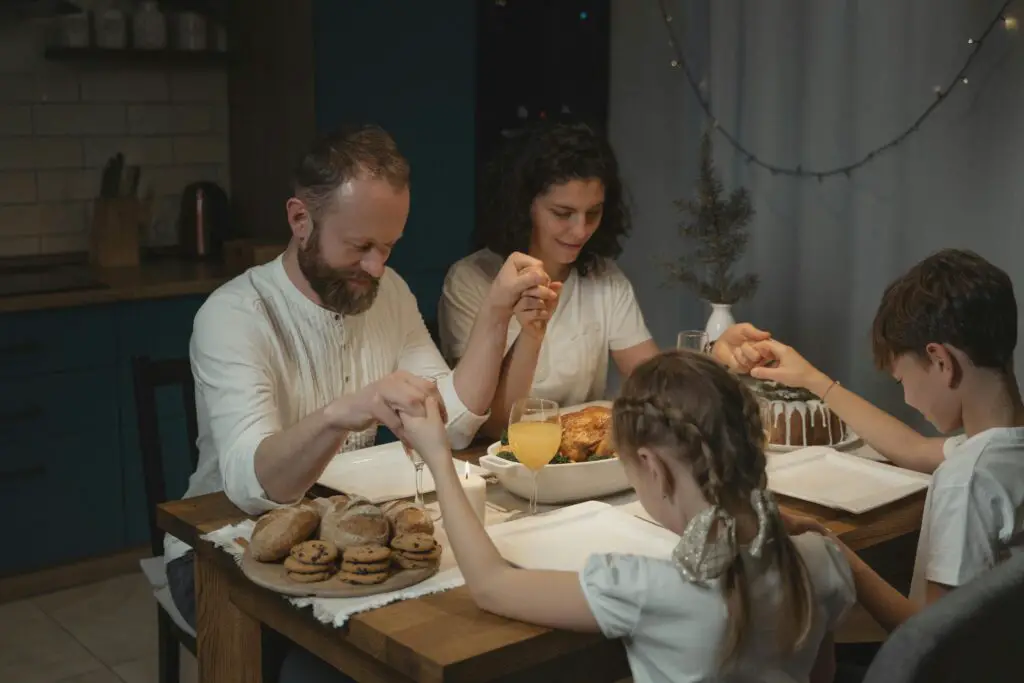
Wasting food was a big no-no in the ’60s, and kids were expected to eat everything served to them, whether they liked it or not. Parents had little patience for picky eaters, and there was no option to request something else if you weren’t a fan of liver and onions. You ate what was put in front of you, and if you didn’t finish, you might find yourself staring at that same plate long after everyone else was done.
Some parents even had the rule that you couldn’t leave the table until your plate was clean. Complaining about dinner usually got you nowhere, except maybe earning yourself a stricter portion the next time. If you really hated something, your best bet was sneaking it to the family dog—if they were willing to eat it. But in most households, “Eat what’s served, or go hungry” was the rule of the land.
6. No Shoes on the Furniture—Ever
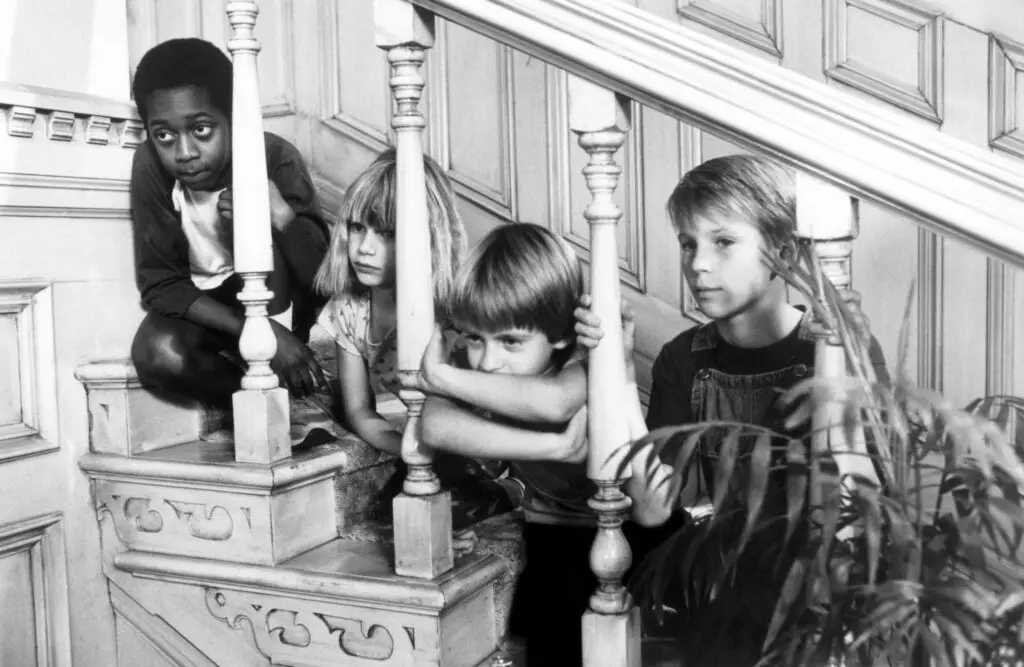
In the ’60s, homes were kept neat, and there was a strict rule about keeping shoes off the furniture. Parents didn’t spend good money on couches and coffee tables just for kids to put their dirty sneakers all over them. If you tried propping your feet up, you’d get a sharp look or a quick reminder to “get your feet down.”
This rule wasn’t just about cleanliness—it was also about respect. Kids were taught to take care of their belongings and appreciate what they had. Even putting your feet up in socks might earn you a warning, depending on the household. If you had a guest over who didn’t know the rule, you’d probably get the blame for not telling them. Parents expected the house to be kept in order, and that meant furniture was for sitting, not for feet.
7. Bedtime Was Non-Negotiable
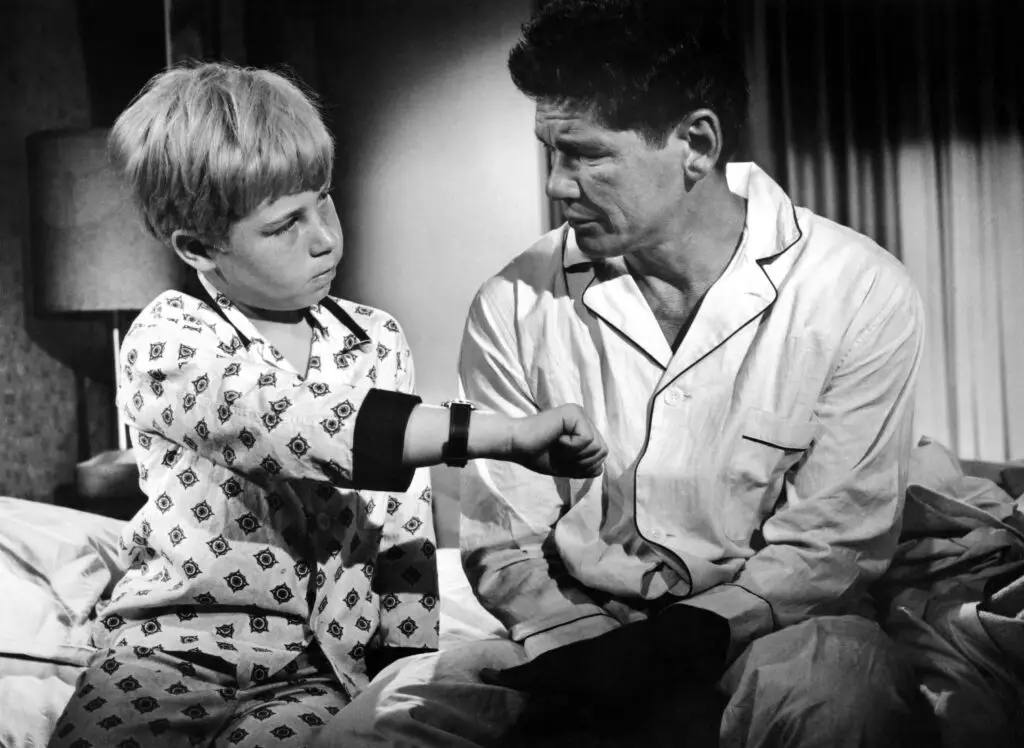
There was no arguing about bedtime in the ’60s—parents set a time, and that was that. Most kids had to be in bed by a certain hour, even if they weren’t tired. There were no smartphones or tablets to sneak under the covers, so once the lights were out, it was time to sleep. If you tried pushing the limit by asking for “just five more minutes,” you probably got a firm “No.”
Parents believed that kids needed structure and plenty of rest, so staying up late wasn’t an option. If you got caught out of bed, you’d likely be sent right back with no room for negotiation. Reading a book under the covers with a flashlight was about the only way to rebel—if you didn’t get caught. And waking up groggy the next morning? That wasn’t an excuse to skip responsibilities.
8. No Slamming Doors in This House
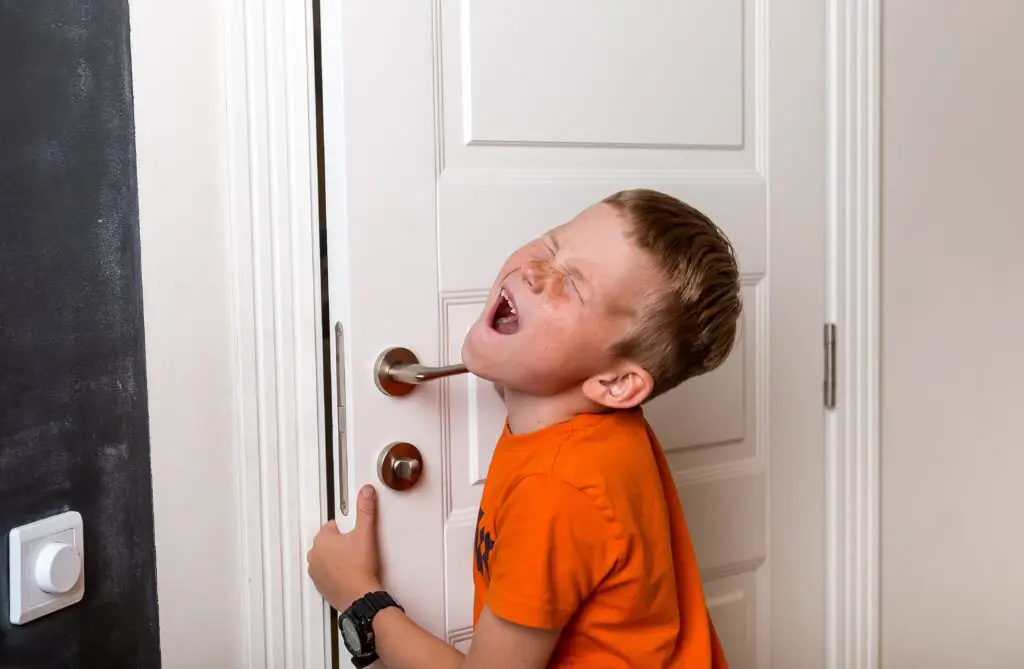
Parents in the ’60s didn’t tolerate door-slamming, no matter how upset you were. If you stomped off and slammed your bedroom door, you might have found it taken off the hinges. Doors were meant to be opened and closed quietly, and anything louder than that was considered disrespectful.
Slamming a door during an argument was a surefire way to make things worse. Some parents would immediately call you back to re-enter the room “properly.” Others gave consequences like extra chores or a firm talking-to. If you did it more than once, you might lose the privilege of even closing your door. It was one of those simple household rules that made sure everyone kept their tempers in check.
9. Saturday Mornings Were for Chores Before Fun

The idea of lounging around all morning on a Saturday just didn’t fly in most ’60s households. Parents expected kids to help out with chores before they could go outside or watch cartoons. Whether it was dusting furniture, sweeping the floor, or tidying up your room, there was always something to be done. Complaining about it didn’t get you anywhere—if anything, it might have earned you an extra task.
This rule taught kids responsibility and the importance of contributing to the household. Parents weren’t about to do everything themselves, and kids were expected to pull their weight. Once the work was done, though, the rest of the day was usually yours. You could finally head outside to play with friends or catch the last half of The Bugs Bunny Show. But skipping chores? That wasn’t an option unless you wanted to stay home all day.
10. No Speaking Until Adults Finished Their Conversation

If parents were talking, kids knew to stay quiet and wait their turn. Interrupting was seen as disrespectful, and most kids learned quickly that butting in mid-conversation wouldn’t end well. If you absolutely had to say something, you might stand nearby and wait for a pause—sometimes for what felt like forever. Saying, “Excuse me,” might have helped, but even then, it had to be for a good reason.
This rule wasn’t just about manners—it was about teaching patience and respect. Kids weren’t the center of attention all the time, and adults expected them to understand that. Some households took it even further, making sure children didn’t speak at the dinner table unless spoken to. While this might seem strict by today’s standards, back then, it was just how things were. And if you forgot? A quick glance from Mom or Dad reminded you to zip it.
11. The House Had to Be Spotless Before Company Came Over

Parents in the ’60s had high standards when it came to keeping a clean house, especially if guests were coming over. Even if someone was just stopping by for coffee, the entire house had to be in order. That meant kids were often put to work—dusting, vacuuming, or making sure there wasn’t a single toy out of place. The living room, in particular, had to look perfect, as that’s where guests were usually entertained.
This rule wasn’t just about cleanliness—it was about appearances. Parents wanted to present a well-kept home, and having a messy house was seen as a reflection of poor parenting. If a neighbor unexpectedly knocked on the door and things were out of place, there’d be some embarrassed scrambling to make things look decent. And if you left smudges on a freshly cleaned window? You might be cleaning it all over again.
12. Children Had to Address Adults as “Mr.” or “Mrs.”

There was no calling adults by their first names in the ’60s unless you wanted a serious scolding. Kids were taught to address their elders with a respectful “Mr.” or “Mrs.,” followed by their last name. Even if the neighbor down the street insisted, “Oh, just call me Betty,” your parents likely reminded you that it wasn’t proper. Using first names without a title was considered too informal and even rude.
This rule extended to teachers, store clerks, and just about any adult you interacted with. The expectation was that kids showed respect, not just to their own parents but to all grown-ups. If you forgot and slipped up, you might get a firm correction right then and there. Some families even required kids to say “sir” or “ma’am” when answering an adult’s question. It was all about teaching good manners, and those lessons stuck with kids for life.
13. No Playing at the Dinner Table
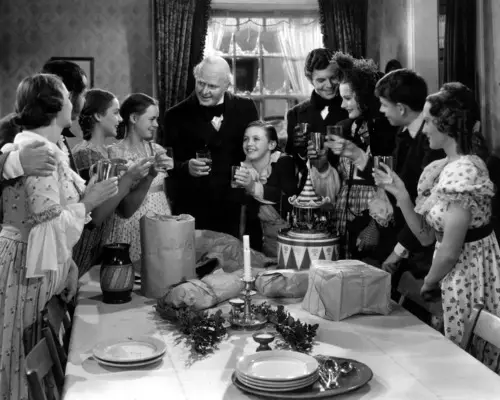
Family dinner time in the ’60s was taken seriously, and playing with your food—or anything else—was unacceptable. Mealtime was for eating and talking, not for goofing around. If you started making a tower out of your mashed potatoes, you’d probably get a sharp look from Mom or Dad. And laughing so hard you almost spit out your milk? That was a one-way ticket to being excused from the table.
Parents saw dinner as an important time to catch up on the day and reinforce good behavior. Slouching, elbows on the table, or talking with your mouth full were all things kids got corrected for. If you got too rowdy, you might have been sent to your room without finishing your meal. The expectation was simple: eat properly, participate in conversation, and don’t cause a scene. It was all part of learning how to behave in polite company.
14. Kids Had to Write Thank-You Notes for Gifts

If you received a gift in the ’60s, you weren’t off the hook until you wrote a proper thank-you note. Parents made sure kids sat down and penned a message of gratitude, even if they weren’t thrilled about it. It didn’t matter if it was a birthday present, a Christmas gift, or even just a small token—every giver deserved a written thank-you. And no, a quick “Thanks” wasn’t enough; parents expected complete sentences.
This rule wasn’t just about courtesy—it was about teaching kids to be appreciative. Parents didn’t want their children to grow up feeling entitled or taking kindness for granted. The process of writing the note also reinforced good writing skills and the importance of follow-through. And if you tried to get out of it? Your parents probably wouldn’t let you enjoy your new toy or book until the letter was stamped and mailed.
15. If You Made a Mess, You Cleaned It Up

There was no “Mom will take care of it” mentality in most ’60s households. If you made a mess, it was your responsibility to clean it up, no matter how small. Dropped crumbs? You grabbed a broom. Knocked over a drink? You got a towel. Parents expected kids to take ownership of their actions instead of leaving it for someone else.
This rule was all about teaching responsibility from an early age. Parents believed that cleaning up after yourself built good habits for adulthood. If you left a mess and ignored it, chances were you’d get called back to handle it anyway. There was no escaping the consequences, and whining about it usually just made things worse. Learning to tidy up was just part of growing up in a household that valued discipline.
